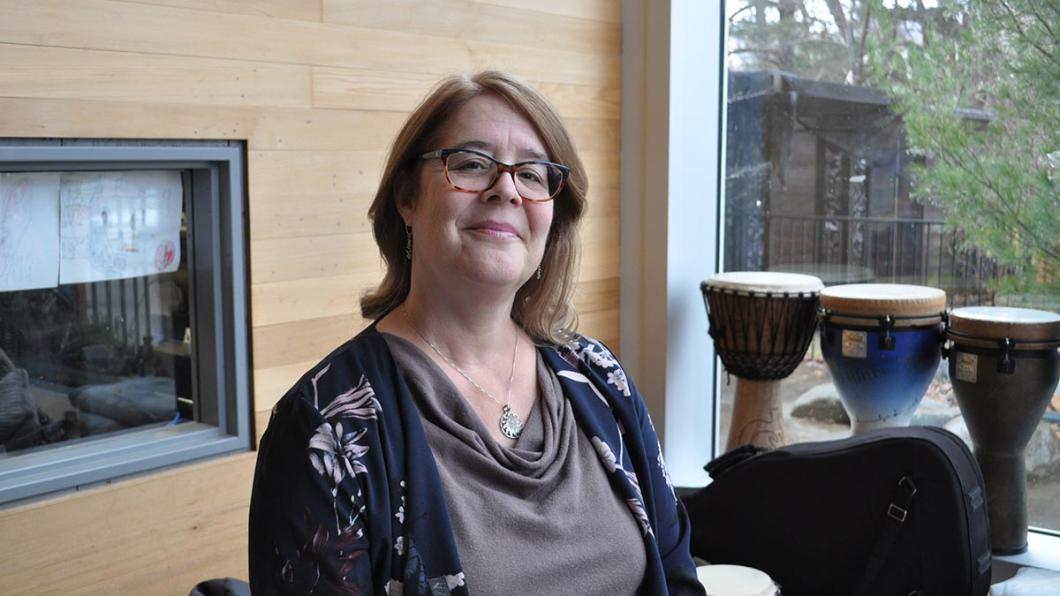
Study shows virtual CBT reduces anxiety in autistic children – improving access to care across Ontario
Dr. Jessica Brian is a psychologist and senior clinician scientist at the Bloorview Research Institute, Holland Bloorview Kids Rehabilitation Hospital, and an associate professor in the Department of Paediatrics at the University of Toronto. She also co-leads the Autism Research Centre at Holland Bloorview.
In recognition of Autism Acceptance Month, Dr. Brian participated in a Q&A to share findings as the lead author of a recent study published in Scientific Reports examining the effectiveness of virtual cognitive behavioural therapy (CBT) in reducing anxiety for autistic children.
1. Can you briefly explain what this study was about and why it’s important?
This study looked at delivering a specialized anxiety treatment program called Facing Your Fears (FYF) virtually to autistic children experiencing anxiety. FYF is a cognitive behavioural therapy (CBT) program adapted specifically for autistic youth. We wanted to see if providing it through a virtual platform would effectively reduce anxiety. The findings showed significant improvements in anxiety symptoms, confirming that virtual FYF works well.
2. How does virtual Facing Your Fears therapy differ from in-person sessions, and why do these differences matter?
The virtual version of Facing Your Fears (FYF) includes some key adaptations from the in-person program to enhance effectiveness and engagement online. For instance, we shortened the number of group sessions from 14 to 12 and replaced two sessions with individual caregiver phone calls. These calls allow for personalized troubleshooting, extra coaching and boosted parents’ confidence in managing their child’s anxiety. We also increased the amount of time for parent-child activities within sessions to keep children engaged while reducing fatigue from virtual participation. These differences matter because they maintain the core effectiveness of FYF while making it easier for families to participate without traveling or disrupting their routines. These modifications were also designed or approved by the program developer.
3. What were the most significant findings regarding the effectiveness of virtual CBT for autistic children’s anxiety?
Our study found that virtual CBT significantly reduces anxiety symptoms in autistic children, as reported by both caregivers and the children themselves. Specifically, after completing virtual FYF, there was a significant drop in anxiety scores across the entire group, and the proportion of children experiencing clinically significant anxiety dropped by 19 percentage points (from 76 to 57 per cent). Children’s self-reports showed similar anxiety reductions to what their parents reported. Caregivers also reported greater confidence and improved skills in supporting their child’s anxiety. These results clearly demonstrate that virtual CBT can effectively reduce anxiety symptoms in autistic youth.
4. What are the key benefits of virtual therapy delivery identified in your research?
The primary benefit of providing the FYF therapy virtually is increased accessibility. Families from across Ontario, including remote and rural communities, participated in the study—families who might not otherwise have been able to access specialized care. We also saw high caregiver satisfaction with the virtual format and strong retention and attendance rates (over 83 per cent of families attended most sessions). Importantly, caregivers also reported a significant increase in their ability to manage their child’s anxiety at home, showing the practical value of virtual therapy in equipping families with skills that they can use in their daily lives that allow them to continue supporting their children.
5. Based on your findings, how could health-care systems realistically integrate and scale virtual CBT programs for autism beyond this study?
Our findings clearly support the idea of scaling virtual CBT programs like FYF across Canada. In Ontario, for example, mental health supports such as FYF are already eligible for provincial funding through the Ontario Autism Program (OAP). Families can access these supports through their OAP funding, without needing new or additional funding sources. Extension to other Canadian provinces may also be a resource-efficient way to support more children and youth, through existing mental health services.
Importantly, this research was funded by the Ontario Ministry of Health through a grant specifically designed to enhance mental health services during COVID-19, with Dr. Evdokia Anagnostou as the principal investigator. Thanks to this provincial investment, we successfully trained clinicians across Ontario—psychologists, pediatricians, social workers and trainees—rapidly increasing the province’s capacity to deliver specialized anxiety care. This existing pool of trained providers offers a ready-made network to expand the virtual FYF model across Ontario, and sets an example for the rest of Canada and beyond.
Read the full paper here: Virtual delivery of group-based cognitive behavioral therapy for autistic children and youth during the COVID-19 pandemic was acceptable, feasible, and effective | Scientific Reports